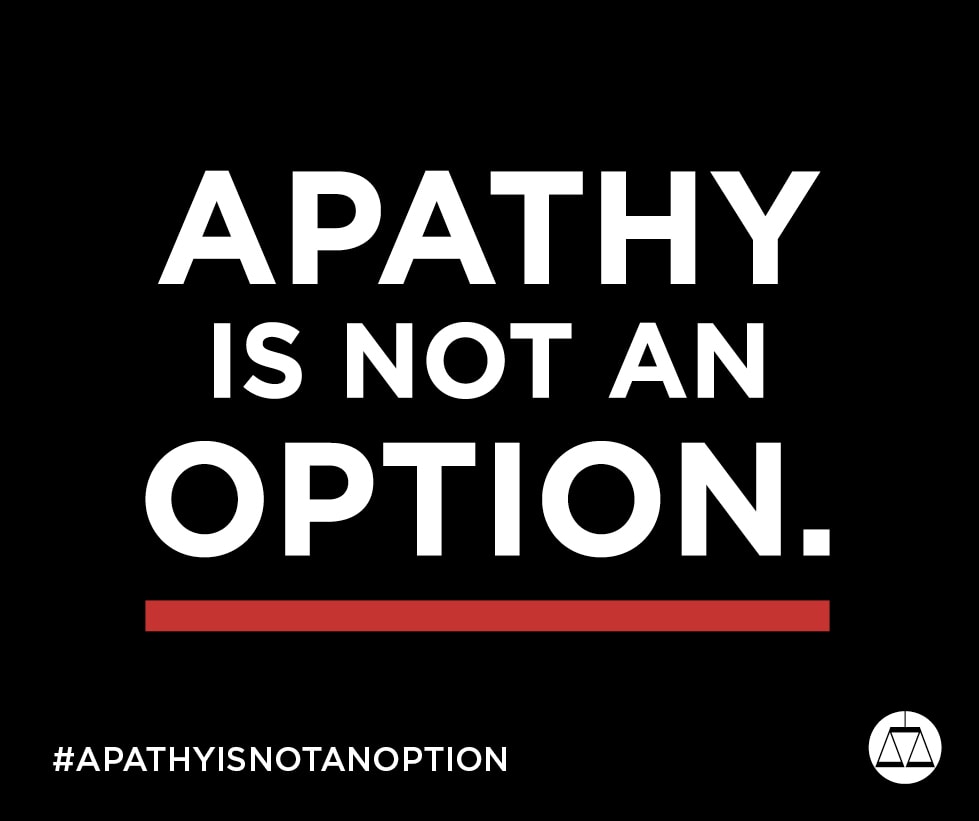Apathy and lethargy are pervasive challenges in today’s world, often infused with a sense of resignation and defeat. However, in the realm of Bahá’í teachings, such states of being are explicitly discouraged. One may ponder: what motivates individuals to act decisively in a world awash with distractions and despondency? In the context of Bahá’í ethics, apathy is characterized as an ailment that undermines not only individual growth but also societal progress. A close examination of Bahá’í principles reveals a clarion call for each believer to rise against the inertia of inaction.
The Bahá’í Faith, which emphasizes the unity of all humankind, posits that every individual bears a moral responsibility to contribute to the advancement of society. Central to this ethos is the understanding that spiritual and social development are inextricably linked. Bahá’ís are encouraged to transcend their personal grievances and engage actively in the betterment of their communities. The underlying doctrine necessitates that believers embrace a proactive stance towards social issues, enshrined within the Bahá’í writings.
The Danger of Apathy
Apathy is often conceptualized as a state of indifference, a resignation to the status quo devoid of concern for the consequences of one’s actions or inactions. In the context of Bahá’í teachings, apathy presents a profound dilemma. It is a phenomenon that not only halts personal growth but also thwarts the collective advancement of humanity. When individuals succumb to lethargy, they inadvertently endorse injustice and inequality by their silence and inaction.
One might ask, how can a community thrive when its members choose to remain passive? The Bahá’í perspective elucidates that every moment of passivity is a missed opportunity for learning, growth, and service. The teachings advocate for an engaged spirit; lethargy is portrayed as a fetter that binds the believer to a languorous existence, devoid of vibrant connection to life’s manifold possibilities.
The Call for Action
At the heart of this discussion about apathy lies a fundamental question: what constitutes meaningful action? The Bahá’í Faith does not advocate for grandiose measures alone; rather, it emphasizes that even modest acts can catalyze substantial change. Acts of kindness, community service, and advocacy for social justice are integral pathways through which believers can enact their commitment to the faith.
Bahá’ís are guided by the principle that individual efforts, however small, accumulate to facilitate significant transformation. Inherent in this belief is the acknowledgment that every person possesses unique abilities and can contribute in varied capacities. One may ponder what talents and resources they can marshal towards this noble end. The encouragement to engage actively is yet another manifestation of the universal principle of service—an essential tenet of Bahá’í teaching.
Personal Reflection and Community Engagement
For Bahá’ís, self-examination is crucial. Is one’s life marked by engagement or apathy? In this reflective journey, the teachings provide asked tools to assess one’s contributions to the community. The challenge lies not solely in recognizing one’s own lethargy but in fostering a culture of accountability among peers. To combat apathy, Bahá’ís should cultivate discussions that inspire action, encouraging one another to embark on initiatives that resonate with collective aspirations.
Furthermore, community gatherings, study circles, and youth programs serve as fertile ground for stimulating dialogue and fostering a dynamic exchange of ideas. These forums can effectively nurture an environment where members feel emboldened to contribute their voices and skills. Through collective engagement, the bleak specter of apathy can be dispelled, giving rise to a vibrant and responsive community.
The Role of Education
Education plays an instrumental role in confronting apathy. The Bahá’í teachings strongly advocate for universal education, positing that an informed populace is less prone to lethargy. Through education, individuals can awaken to the realities of social injustices, fostering a sense of urgency and responsibility. The empowerment that derives from education enables Bahá’ís to identify and address the myriad challenges facing humanity, rather than turning a blind eye.
This enlightenment is not limited to formal education; it extends to the acquisition of spiritual knowledge which instills ethical frameworks guiding individuals in their actions. Bahá’í teachings encourage a lifelong journey of learning, suggesting that that awareness beckons engagement, while ignorance breeds apathy.
The Transformative Power of Love and Unity
At the core of Bahá’í spirituality is the transformative power of love for humanity. Such love transcends personal barriers and urges individuals to act for others’ welfare, consequently diminishing the propensity for apathy. To believe in the oneness of humanity as professed by the Bahá’í Faith is to recognize that inaction towards societal issues harms the entire collective.
Moreover, the Bahá’í concept of unity calls for collaborative action among believers. It is through this unified approach that Barriers of apathy can be dismantled, leading to substantial collective impact. The essence of unity translates to combined efforts that not only elevate individual spirits but also galvanize community vigor.
Through active engagement, education, and unity, the Bahá’í community can eradicate apathy, transforming lethargy into a fervent impetus for change. Each believer holds the potential to harness their capacities to affect their surroundings positively, thereby adhering to the spiritual and ethical tenets of the Bahá’í Faith. The question remains: will one embrace the challenge of transformation, or succumb to the quiet lull of indifference? That choice defines the path ahead.
